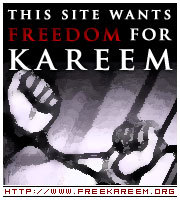Russia Announces its Comeback
Russian President Vladimir Putin has signalled Russia's return to the centerstage of world politics from where it was thrown out when the USSR lost the Cold War. Putin in his annual state of the union address - which could be his last before he demits the office in 2008 - used his speech to reassert an identity for a united Russia and to talk in no uncertain terms about where Russia is going.
Throughout the speech, Putin returned to the idea of unifying a nation that is making a comeback. He spent much time celebrating Russia's political and economic consolidation -- which, he said, will allow the government to improve the standard of living for the population and address the social problems laid out in his 2006 address. He outlined a string of ambitious reforms for the housing, education and pension sectors, as well as an overhaul of the transportation, aviation and nuclear power sectors. Putin wants Russia to be great again. He has successfully consolidated his political and economic control and now hopes to stoke the fires of nationalism and rally the people behind a new Russian identity. And Russians are applauding; they have not had a strong sense of identity in 18 years. With a unified populace behind him, Putin hopes Russia can assert itself on the international scene as it has not done for decades. That assertiveness came through clearly in Putin's harsh rhetoric for the international community. He accused foreign countries of hoping "to continue plundering our national wealth as they did in the past," and trying "to deprive our country of its economic and political independence." He called for a moratorium on the implementation of the Conventional Forces in Europe treaty, which has been the foundation of Europe's post-Cold War security. Regardless of whether the Kremlin acts on it, this was a clear signal to the rest of the world that Russia believes it no longer needs to adhere to Western rules. Russian leaders have always included veiled threats to the West (or East) in their formal speeches. But now the government has the cash, political power and popular support it needs to make good on them. For the first time since the end of the Cold War, the international community will take the Kremlin's threats seriously -- even if Moscow does not actually intend to act on them. [.....] Anyone who has been watching Russia in the past few years will not be surprised by this. The various signs have been apparent: the aggressive takeover of Russia's energy sector; the maneuvering among the members of Putin's inner circle; and the crackdowns on dissidents, media, political parties and foreign influence. Russia has begun to lay the groundwork for a massive revitalization that will include its energy sector, its military, its former territories and its autonomy from Western rules and demands.In effect, Putin has now announced the state's return to its old ways.[Stratfor] |
Not only this, Russia under Putin has also shown India its place in Russia's scheme of things. And we are not able to do anything about that.
It is time India played its cards well and does not put all its eggs in one basket (read: United States). A strong Russia will find it extremely hard to ignore the business opportunities in a fast growing India just like they found out with China. We should learn to play competing countries off against each other - something that is practised with finesse by countries like Fiji, Myanmar etc.






No comments:
Post a Comment